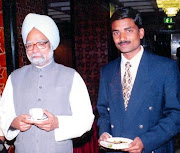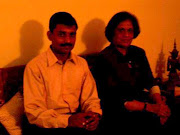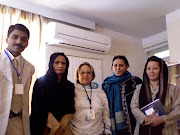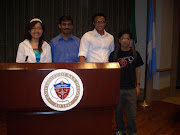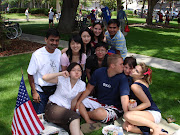Over the years, cynical and shameless manipulation of the poor and powerless voters through competitive populism has become the dominant feature of our elections. The current Tamil Nadu Assembly election has shown that this process of manipulating the vote has reached the nadir. The DMK-combine promised colour televisions to each family!
This is by no means the first time when a party offered freebies to the unsuspecting and hapless poor. Most candidates habitually offer money and liquor for vote. And since the early 1970s, politicians have perfected the art of using public money as inducement for vote. Ostensibly, all these promises are intended to eliminate poverty.
But the gullible poor remain as vote-banks and no significant dent is made in poverty. The Garibi Hatao politics of the 1970s and the populist policies of NTR and MGR are good illustrations of the poor becoming an assured vote bank, even as their condition remains largely unaltered. The absurd campaign of Devi Lal in Haryana in 1987 marked a new low, when he promised to give irrigation water without “depleting the power in it,” as opposed to the Congress which allegedly generated hydro-electricity before allowing it to flow into irrigation canals! Devi Lal again hit headlines in 1989 by promising to write off farm loans. The loan waiver was eventually implemented by VP Singh’s government in 1990. The credit system suffered irreparable damage, and farmers continued to be in distress after the loan waiver.
The politics of free electricity has dominated our electoral landscape for long. Several states resorted to this, including the present Congress government in Andhra Pradesh. Farmers continue to pay huge bribes for new connections or services, power supply is erratic and utilities suffer serious losses, at great cost to the taxpayer. And yet, the cynical governments resorting to such short-term ploys reap rich political dividends.
But all these pale into insignificance in the face of the brazen DMK promise to give colour television sets. By this reckless promise, the sovereign voters are converted into mendicants. The tragic death of several poor women while distributing free saris in Lucknow in 2004 forever reminds us how the voter has been reduced to a beggar. But Mr Karuna-nidhi now seeks to institutionalise such mendicancy. In such political calculations, people are not human beings with dreams and aspirations, dignity and pride. They are reduced to being voters whose compliance is necessary for the power of a few manipulators.
Most of the subsidies and freebies offered by parties so far can be justified on the ground that they were meant to help fulfill potential or prevent suffering, or support the weak and vulnerable. But colour television sets cannot be justified on such grounds by any stretch of imagination. That is why Mr Karunanidhi’s promise has implications beyond Tamil Nadu and this election.
If such a reckless electoral tactic goes unpunished or unchallenged, who knows what tomorrow will bring? In a future election, a party may offer free motorcycles, another will promise refrigerators to all and a third will give motorcars! And why not guarantee a hundred bottles of free liquor annually to every family? And all this, with public money. This will certainly bankrupt the treasury. The election will go to the highest bidder. Once such promises are honoured, nothing much more can be done. Education may be in a perilous state, denying poor children an opportunity to enlarge their horizon and acquire skills; we may have more televisions than toilets, and people may suffer indignity, humiliation, in-convenience and ill health on account of public defecation; and public health may be in shambles, forcing millions into sickness and debt trap. But once people get televisions and scooters, the state does not have resources to do the things that it ought to do.
Therein lies the real tragedy. The state is ready and willing to do what it need not, or ought not to do, at the cost of its essential functions. Poverty is perpetuated and millions remain as vote banks, seeking alms and freebies that will never improve their condition. The netas and their families, of course, continue to thrive in the ‘service’ of the people. The servant becomes the master, lording over people, and the sovereign citizens become mendicants, propping the political fortunes of a few individuals and their kith and kin.
This must stop. If the parties have any sense of shame and spirit of public service left in them, they must come together to put an end to this culture of mendicancy. The media, busy peddling the week’s sensation, must rise above the mundaneness of daily occurrences, and mobilise public opinion to reshape politics. The time is now, before all parties subvert our democracy fully and public office becomes the preserve of the highest bidder.
